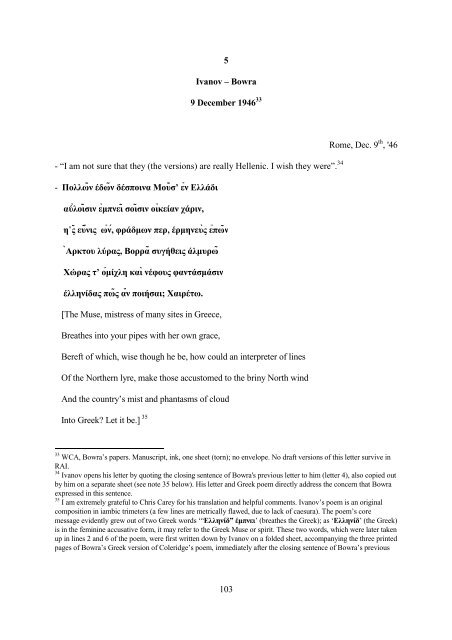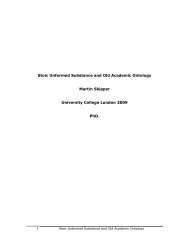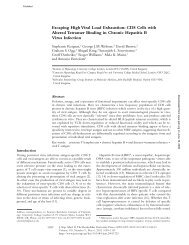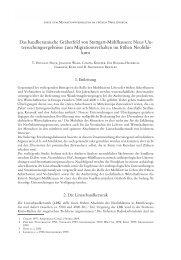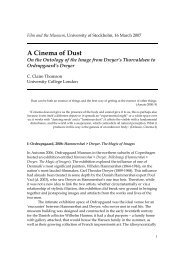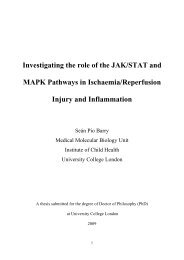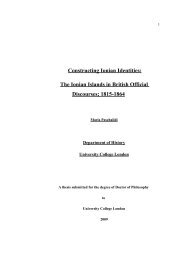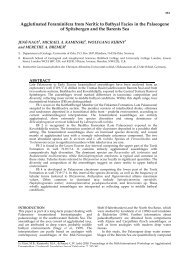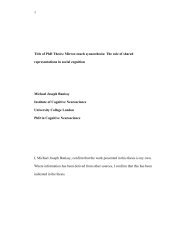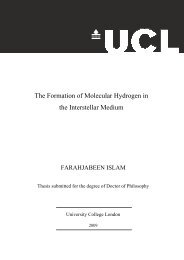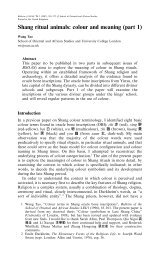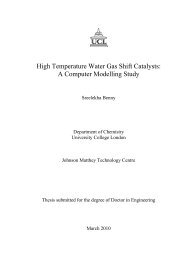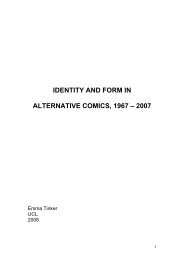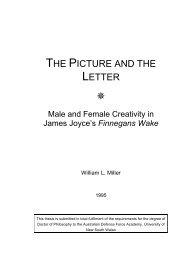Vyacheslav Ivanov and C.M. Bowra: a ... - UCL Discovery
Vyacheslav Ivanov and C.M. Bowra: a ... - UCL Discovery
Vyacheslav Ivanov and C.M. Bowra: a ... - UCL Discovery
You also want an ePaper? Increase the reach of your titles
YUMPU automatically turns print PDFs into web optimized ePapers that Google loves.
5<br />
<strong>Ivanov</strong> – <strong>Bowra</strong><br />
9 December 1946 33<br />
- “I am not sure that they (the versions) are really Hellenic. I wish they were”. 34<br />
- Πολλω̃ν έδω̃ν δέσποινα Μου̃σ’ ε̉ν Ελλάδι<br />
αύ̉λοι̃σιν ε̉μπνει̃ σοι̃σιν οι̉κείαν χάριν,<br />
η˚ς̃ ευ̉̃νις<br />
ω̉ν́, φράδμων περ, έρμηνεὺς ε̉πω̃ν<br />
̀Αρκτου λύρας, Βορρα̃ συγήθεις άλμυρω̃<br />
Χώρας τ’ ο̉μίχλη καὶ νέφους φαντάσμάσιν<br />
έλληνίδας πω̃ς α̉̉ν<br />
ποιήσαι; Χαιρέτω.<br />
[The Muse, mistress of many sites in Greece,<br />
Breathes into your pipes with her own grace,<br />
Bereft of which, wise though he be, how could an interpreter of lines<br />
Of the Northern lyre, make those accustomed to the briny North wind<br />
And the country’s mist <strong>and</strong> phantasms of cloud<br />
Into Greek? Let it be.] 35<br />
103<br />
Rome, Dec. 9 th , '46<br />
33<br />
WCA, <strong>Bowra</strong>’s papers. Manuscript, ink, one sheet (torn); no envelope. No draft versions of this letter survive in<br />
RAI.<br />
34<br />
<strong>Ivanov</strong> opens his letter by quoting the closing sentence of <strong>Bowra</strong>'s previous letter to him (letter 4), also copied out<br />
by him on a separate sheet (see note 35 below). His letter <strong>and</strong> Greek poem directly address the concern that <strong>Bowra</strong><br />
expressed in this sentence.<br />
35<br />
I am extremely grateful to Chris Carey for his translation <strong>and</strong> helpful comments. <strong>Ivanov</strong>’s poem is an original<br />
composition in iambic trimeters (a few lines are metrically flawed, due to lack of caesura). The poem’s core<br />
message evidently grew out of two Greek words ‘“Ελληνίδ” έμπνει’ (breathes the Greek); as ‘Ελληνίδ’ (the Greek)<br />
is in the feminine accusative form, it may refer to the Greek Muse or spirit. These two words, which were later taken<br />
up in lines 2 <strong>and</strong> 6 of the poem, were first written down by <strong>Ivanov</strong> on a folded sheet, accompanying the three printed<br />
pages of <strong>Bowra</strong>’s Greek version of Coleridge’s poem, immediately after the closing sentence of <strong>Bowra</strong>’s previous


